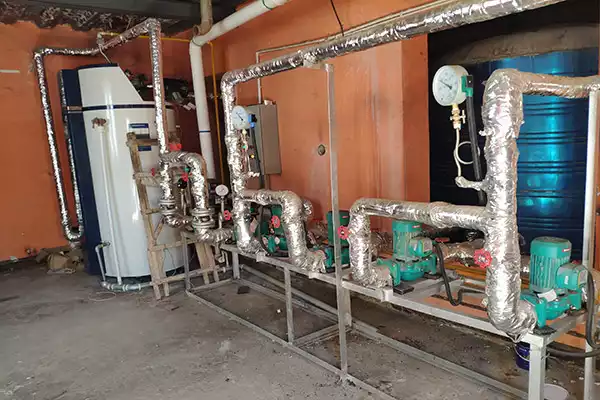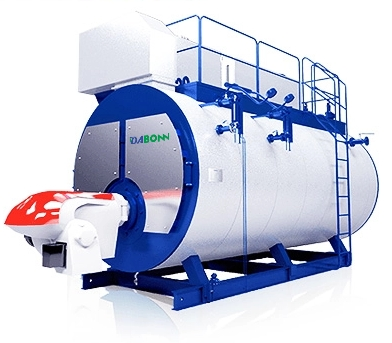
Introduction
A boiler leaking water can be a serious issue for you. Not only do they waste energy, but they can also cause serious damage to your home. If you don’t fix it on time, your leaking boiler could end up costing you thousands of pounds in repair fees. In this guide, we’ll help you determine if your boiler is leaking and how to fix it if it is.
Why is my boiler leaking water?
Pressure Problems
Your boilers operate under specific pressure levels to ensure efficient heating. However, excessive pressure can strain components, leading to leaks. When the pressure relief valve fails to function correctly, the excess pressure can cause leaks to develop at weaker points in the system. This is a critical issue to address promptly, as unchecked pressure problems can result in safety hazards.
Loose Connections
A boiler system comprises numerous interconnected pipes and fittings. Over time, vibrations from normal operation can cause these connections to loosen. These loose fittings can result in water seepage, contributing to leaks.
Seal or Body Damage
The seals and gaskets within a boiler system help maintain a watertight environment. However, wear and tear from prolonged exposure to heat and pressure can compromise these seals. Additionally, physical damage or poor installation can also lead to leak-prone areas.
Damaged Blowdown Valve
The blowdown valve serves the purpose of releasing built-up sediment and minerals from the boiler, preventing corrosion. If this valve is damaged or improperly sealed, leaks can occur.
Corroded Heat Exchanger
Corrosion is a natural process that occurs over time, particularly in environments involving water and heat. The heat exchanger, a critical component of the boiler, can corrode due to continuous exposure to water and high temperatures. Corrosion weakens the metal, making it more susceptible to developing leaks.
Automatic Air Vent Leakage
Automatic air vents are crucial for releasing air trapped within the system, ensuring efficient heating. However, if these vents malfunction or become damaged, they can allow water to escape.
Deposits Trapped in Pressure Valve
Mineral deposits and debris can accumulate within pressure valves, affecting their proper functioning. When a pressure valve fails to close completely due to these deposits, it can result in water leakage.
Is a boiler leak serious?
A boiler leak is a sign of a problem. If you don’t fix it in time, the more serious the issues can become. A leaking boiler can cause fires and damage to your home’s structure as well as pose health risks for you and your family. For example:
- A small leak can turn into flooding if left unattended long enough. This can cause damage to floors and furnishings in your home.
- Leaking water may cause fires if it comes into contact with an electrical source like an outlet or light switch.
Can I still use my boiler if it’s leaking?
If your boiler is leaking water, you should not use it. The main reason for this is that if you do use a leaking boiler, it continues to leak. Then both you and others in your home are at risk of being injured.
The second reason why you shouldn’t use a leaking boiler is because doing so could cause damage to the internal components of the heating system. This will mean that repairs will need to be carried out sooner rather than later. It could cost hundreds or even thousands of pounds depending on what needs fixing!
How can I fix a leaking boiler?
In order to fix a leaking boiler, you need to find the source of the leak. Here are some common causes:
- Check the flue pipe for cracks or holes. This is usually due to corrosion over time that can be repaired with sealant or replacement parts.
- Check your boiler pressure relief valve and make sure it’s set properly (usually between 5 and 10 pounds per square inch) so that no damage is done when water escapes from inside your boiler during a leak.
- Check your boiler temperature gauge so you know whether there’s too much heat escaping through leaks in its shell or pipes. As long as these aren’t damaged, they should be able to withstand high temperatures without cracking open!
- Check your pressure relief valve by opening it up and making sure there aren’t any rocks or debris inside (this could cause damage). You may also want to clean out any mineral deposits in case they were causing an issue with functionality as well.
- Check the water level in your boiler. If it’s low and has been for some time. The most likely cause is that water has been seeping out through cracks in or around the base of your unit. This may be due to age-related wear and tear on its internal parts. If this is happening regularly (more than once every few months). Please consider replacing your old boiler with an updated model that comes with better seals against leaks.
- Check your pressure relief valve (PRV). Sometimes these devices fail over time, causing excess pressure inside pipes which then forces hot water through them into surrounding areas. You need to clean out and open up all faucets in your house. This will help relieve some pressure on these valves.
- The drain valve should also be checked for leaks and cracks. If this is damaged or broken in any way, then order a replacement part so that it can be fixed properly before further damage occurs!
- Finally, make sure that your thermostat isn’t malfunctioning by checking its temperature settings. If they’re too high or too low then adjust them accordingly so that everything runs smoothly again!
How to prevent future boiler leaks?
Install a boiler pressure relief valve. This device will release excess pressure from your boiler if it overheats, preventing damage to the system and its components.
- Check the water level regularly. If there’s not enough water in the tank, it can cause problems with heating efficiency. And if there’s too much, you’ll end up wasting energy by boiling more than you need to!
- Clean out your heat exchanger regularly. It doesn’t get clogged up with debris like dust and lint from or whatever other fabric might be floating around in there.
- Check all connections between pipes every year or so. Make sure they’re secure so no leaks occur due to loose fittings rubbing against each other as part of normal wear-and-tear over time.
- Check the flue pipe regularly. The flue pipe is where you can see if any water or steam is escaping from your boiler and into your home. If you notice that there is water leaking from this area, it could mean that something needs to be replaced on your appliance.
- Replace old parts on your boiler as soon as possible. They can cause serious damage if they aren’t fixed right away.
Frequently Asked Questions.
Will turning off my boiler stop it from leaking?
Turning off your boiler may temporarily stop it from leaking, but it won’t fix the underlying problem. It’s important to have a professional inspect and repair the issue to prevent further damage.
Why does my boiler leak when it’s turned off?
If your boiler is leaking when it’s turned off, one common reason is a faulty pressure relief valve. It may be releasing excess pressure even when the boiler is not operating. Another possibility is a leak in the internal components of the boiler, such as a damaged seal or gasket.
Why is my boiler leaking when the heating is on?
When your boiler is leaking while the heating is on, one potential cause is a buildup of pressure within the system, causing leaks to occur. Other reasons could include issues with the expansion tank, a faulty pressure relief valve, or damaged pipes or fittings.
Why is my boiler dripping water from the bottom?
If your boiler is dripping water from the bottom, it usually indicates an internal issue. This could be a leak in the heat exchanger. Another possibility is a damaged or corroded pipe that needs to be replaced.
Why is my boiler leaking water from the top?
When your boiler is leaking water from the top, it’s often a sign of an issue with the pressure valve or pressure relief valve. If they are not functioning properly, they may release water. Additionally, a malfunctioning expansion tank can also cause water to leak from the top of the boiler.
Why is my boiler leaking water from the overflow pipe?
If your boiler is leaking water from the overflow pipe, it could be a sign of excessive pressure in the system. This can be caused by a faulty pressure relief valve or a malfunctioning expansion tank.
Why is my boiler leaking water from the relief valve?
When your boiler is leaking water from the relief valve, it indicates that the pressure inside the boiler is too high. This can happen due to a faulty pressure relief valve, a buildup of sediment or debris in the system, or an issue with the pressure regulator.
Conclusion
A leaking boiler is a common problem, and it can be easily fixed. If you’re unsure what’s causing the leak or how to fix it, we recommend calling a professional. They will be able to diagnose the issue quickly and help with any repairs needed for your system.
Get your best price
Quickly compare 3 FREE quotes
- Engineer quick quote
- The overall delivery speed is fast
- Financial choice
- Low installation costs and cost savings
25 years+ of boiler R&D
More than 20 innovative technologies
